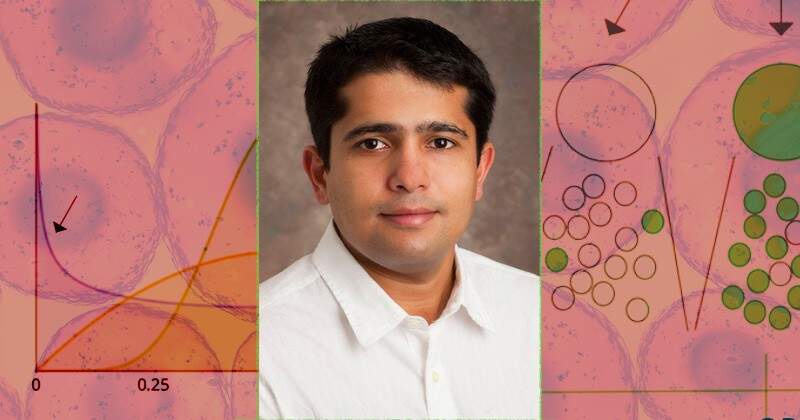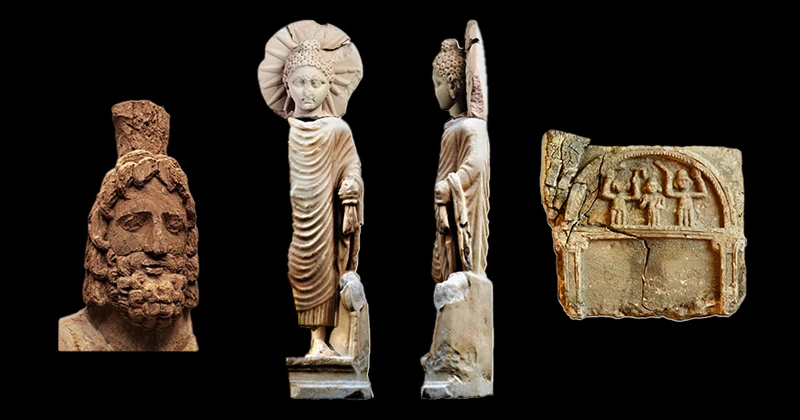RESEARCH
DISCOVERY
A Blog Devoted to UD Innovation, Excellence & Scholarship
BOPHARMACEUTICALS
Targeting Drug-Resistant Cancers
Abhyudai Singh is a mathematical biologist and associate professor at the University of Delaware, who studies and models biochemical processes inside living cells.
Among the things to give thanks for this year is the fact that stubborn, persistent problems seem to have an irresistible sort of magnetic pull for scientists and mathematicians. Things that would leave most of us bewildered are their daily bread.
And that is one reason researchers are making progress in the ongoing fight against cancer, viruses and other diseases.
Such is the case for Abhyudai Singh, a mathematical biologist who is an associate professor in the University of Delaware’s Department of Electrical and Computer Engineering, Mathematical Sciences and Biomedical Engineering and an affiliated faculty member of the Center for Bioinformatics and Computational Biology.
Singh studies how biochemical processes work inside living cells. Specifically, he develops mathematical models that provide insight into the complex, sometimes hidden processes involved in cellular networks and what happens when they go wrong.
His computational work has been a significant part of a collaborative effort with a team at the University of Pennsylvania, led by Professor Arjun Raj of Penn’s Department of Bioengineering. Their recent findings were published in the journal Cell. The article, whose first author was Dr. Sydney M. Shaffer, assistant professor at Penn’s Perelman School of Medicine, shows a potential new strategy against therapy-resistant melanoma cells that could be useful against all kinds of resistant cancers.
“Cancer cells are heterogeneous, even in the same tumor,” Singh said. “Some have drug tolerance and survive therapy. Then they rebound…. Now we have found molecular mechanisms involved in these drug-tolerant cells that have implications for therapy and can be applied to different cancer types.”






